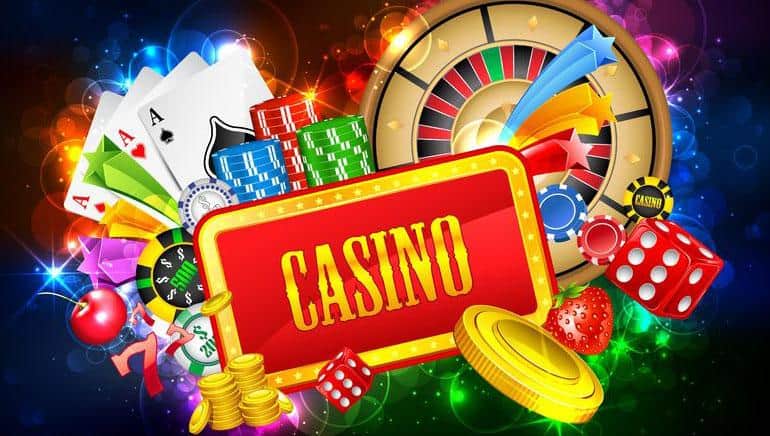
Casino gaming has long been a topic of fascination and debate, drawing in millions of players globally. With a mix of chance, strategy, and the thrill of risk, casino games offer an exhilarating escape from everyday life. 188bet However, as entertainment becomes ever more accessible, it calls for a deeper examination of the ethical implications surrounding these games.
At the heart of the discussion lies the issue of whether casinos promote responsible gaming or take advantage of vulnerable individuals. The appeal of potential winnings versus the truth of losses can create a challenging dynamic, and understanding this balance is crucial for both players and operators. As we delve into the morals of casino gaming, we will explore the responsibilities of casinos, the effects on society, and the steps that can be taken to foster a healthier gaming environment.
The Impact of Casino Gaming on Society
Casino gaming has a considerable influence on society, affecting not only the financial landscape but also interpersonal dynamics and community structures. The funds generated from casinos can lead to job creation and boost regional economies, as they provide numerous employment opportunities in different sectors including hospitality, leisure activities, and retail. However, while the economic advantages can be substantial, communities often struggle with the possible negative impacts that arise from increased gambling activity.
Moreover, the presence of casinos can lead to an increase in gambling addiction, presenting significant challenges for players and families. The thrill of casino games can quickly evolve into a compulsive habit, affecting personal relationships and leading to monetary issues. Many players may struggle with the loss of control over their gambling habits, resulting in a need for assistance programs and interventions to address this increasing issue. The social cost of addiction can extend through kinships and neighborhoods, creating an urgent need for sensible gambling approaches.
In addition to the economic and social ramifications, casino gaming often showcases cultural attitudes towards uncertainty and leisure. It can encourage a sense of excitement and leisure, attracting tourists and boosting local travel. However, this allure may also mask the broader implications of gambling as a form of entertainment, raising ethical questions about its promotion and accessibility. As communities weigh the advantages and drawbacks of casino gaming, the need for sensible approaches and regulation becomes increasingly critical in ensuring that the beneficial elements are enhanced while reducing the negative effects.
Ethical Concerns in Gambling Practices
The ethics of gambling gaming often center around the risk for dependency and its effects on people and households. Gambling can lead to serious monetary distress, impacting not only the betters but also their loved ones. As people become entrapped in the appeal of winning, many lose track of their budget, which can result in devastating results such as bankruptcy. This poses ethical questions about the responsibility of casinos in promoting safe gaming habits and providing support for those who may be dealing with betting addiction.
Another critical issue is the advertising of betting to vulnerable populations. Casinos often target low-income individuals or communities with the promise of quick rewards, which can perpetuate patterns of financial struggle and hopelessness. In this context, the ethics of advertising strategies used by gambling establishments come under examination, as they may exploit the need of individuals seeking an way out from economic troubles. This exploitation raises moral questions about the integrity of the betting industry and its obligation to protect its most at-risk patrons.
Additionally, the effect of casino operations on the community as a whole cannot be overlooked. While some argue that casinos create jobs and stimulate local economies, others point to the community costs associated with dysfunctional betting, increased crime rates, and a strain on public resources. Balancing economic benefits with the risk for social harm presents a challenging ethical dilemma for lawmakers and gambling operators alike. The challenge lies in discovering a ethical approach that prioritizes the well-being of people and communities while still allowing for the enjoyment of gambling activities.
Oversight System and Duties
The legal framework pertaining to gambling activities is developed to ensure fairness, honesty, and participant protection. Various government bodies and gambling commissions create and enforce regulations that dictate how gaming operations work, the guidelines for product creation, and the protocols for managing rewards. These regulations vary by jurisdiction but usually involve licensing requirements for businesses and stringent measures to avoid cheating and dishonesty.
In addition to regulatory bodies, gambling establishments bear significant responsibility in preserving principled standards within their venues. They must enforce safe player practices that support gambler security and education, including presenting self-ban options and providing information about the dangers related to gambling. Casinos are also responsible for training staff to spot signs of compulsive gambling and be aware of the appropriate actions to help visitors in trouble.
Furthermore, openness in casino operations is crucial for building and maintaining public faith. Casinos should present clear details about the probabilities of activities, promotional opportunities, and any connected risks. By promoting an environment of transparency and accountability, gambling establishments can help lessen the likelihood adverse impact of betting while boosting the general gambling experience for all participants.
